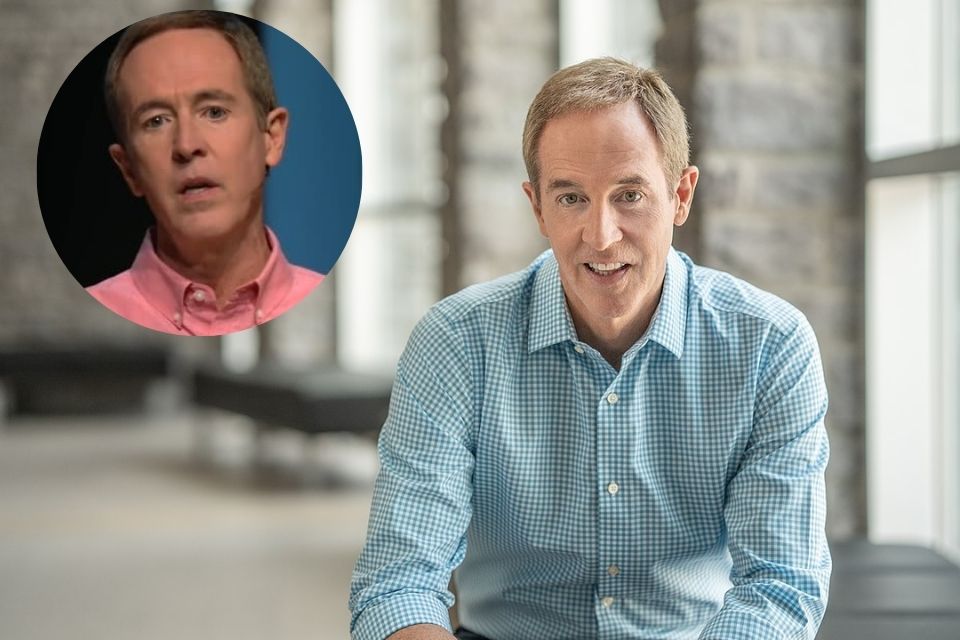North Point Church Pastor resigns from post of senior pastor, leaving the congregation and Christian community in shock. Stanley’s decision to step down followed a series of events that sparked debate over his teachings and leadership style. His departure has not only left a void in one of the most prominent churches in the U.S. but also prompted discussions about modern Christianity’s evolving challenges. This article explores the key details of Stanley’s resignation and its implications.
Who Is Andy Stanley?
Andy Stanley is a well-known Christian pastor, author, and speaker, recognized for his modern approach to Christianity and his ability to engage large audiences. He is the son of Charles Stanley, a respected Southern Baptist pastor, and grew up in a faith-based environment that greatly influenced his career. Stanley’s progressive style has won him both followers and critics, particularly when addressing sensitive topics such as grace, truth, and morality within the Christian framework.
Early Life & Education
Born on May 16, 1958, in Atlanta, Georgia, Andy Stanley was immersed in a religious upbringing due to his father’s pastoral work. He attended Georgia State University, where he earned a bachelor’s degree in journalism before going on to complete his Master of Theology from Dallas Theological Seminary. His educational background helped shape his unique teaching style, which blends contemporary issues with biblical teachings.
Personal Life
Andy Stanley is married to Sandra Stanley, and together they have three children. His personal life has been relatively private, focusing primarily on his ministry. As a pastor, Stanley’s philosophy has always leaned toward inclusive Christianity, often tackling issues many traditional churches shy away from. His family’s influence on his ministry is undeniable, with his father’s legacy as a prominent Southern Baptist figure continuing to echo in his work.
North Point Church Pastor Resignation
On May 1, 2024, Stanley shocked the congregation by announcing his resignation during a Sunday service. After serving for nearly three decades, his decision left many in disbelief. The announcement was brief, with Stanley citing personal reasons and a need for time to explore new opportunities. However, it quickly became apparent that the resignation was deeply tied to the growing controversy surrounding his sermon and the resulting internal conflicts within the church.
Incident That Sparked Controversy
The controversy surrounding Stanley’s resignation began after he delivered a sermon in a series titled “When Gracie Met Truthy.” The message explored the complexities of grace and truth in Christian teachings, using the example of a woman finding out about her husband’s relationship with another man. While Stanley sought to emphasize the importance of grace and forgiveness, some interpreted his words as supporting same-sex relationships, igniting intense debate.
His effort to balance compassion with biblical principles divided opinions, with conservative Christians criticizing his approach as overly progressive. The backlash intensified, leading to greater scrutiny of his leadership.
Reason For Resignation
While Stanley stated personal reasons for his resignation, it became clear that the increasing pressure over his sermon and its aftermath played a significant role. The backlash from both within and outside the church created a tense environment, making it difficult for Stanley to continue leading effectively. Furthermore, reports surfaced about underlying leadership disputes and disagreements over the church’s direction, particularly concerning its stance on social issues.
The public criticism from high-profile Christian leaders added fuel to the fire, making Stanley’s position increasingly untenable. His decision to resign appeared to be a way to diffuse the growing conflict and allow the church to move forward without further division.
How North Point Community Church Is Affected?
Andy Stanley’s resignation has undoubtedly left a profound impact on North Point Community Church. The congregation, which had relied heavily on his leadership, is now facing a period of uncertainty. His progressive teachings had attracted a broad and diverse membership, and his departure left many wondering about the church’s future direction.
Interim leadership has been appointed to help guide the church during this transition. However, questions remain about whether the church will continue following Stanley’s modern approach or return to more traditional teachings. The internal conflicts that led to his resignation suggest that finding a new permanent leader may be a challenging process.
Final Words
The resignation of Andy Stanley from North Point Community Church marks a turning point for one of the largest and most influential churches in the U.S. His decision to step down not only highlights the growing tension between progressive and traditional views within the Christian community but also serves as a reminder of the challenges modern church leaders face. As North Point moves forward, the church must navigate its leadership transition carefully while maintaining unity among its diverse congregation. The next steps for the church could define its future for years to come.
FAQs
- Why did Andy Stanley resign from North Point Community Church?
Andy Stanley resigned due to increasing controversy following a sermon that sparked backlash, coupled with internal leadership conflicts.
- What was the controversy surrounding Andy Stanley’s sermon?
Stanley’s sermon discussed grace and truth in Christian teachings but was seen by some as too progressive, particularly regarding his stance on same-sex relationships.
- How has North Point Community Church reacted to Stanley’s resignation?
North Point Community Church has appointed interim leadership and is working to maintain stability, but many congregants are uncertain about the church’s future direction.
- What is the future of North Point Community Church after Andy Stanley’s resignation?
The church is in a transition phase, with its future direction depending largely on the leadership it appoints and how it addresses internal divisions.










